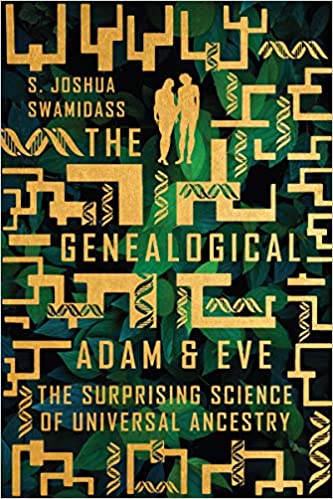Q. It sounds like you are arguing that there are several ideas that might need to be reassessed by scholars. What sort of reassessments are needed?
A. That is right. If we are following the conversation in historical theology, The Genealogical Adam and Eve should provoke a reassessment of key revisions to historical doctrine by several scholars over the last century. To engage with science, many scholars rejected monogenesis by openly embracing the idea of co-Adamites in the present day. Of course, our faith is grounded in Jesus, and does not collapse entirely if co-Adamites are real. But these revisions arose from a misunderstanding of science. There is no good reason to innovate with creative theology to solve a non-existent problem. Co-Adamites really are a myth. We know this is a wrong turn now. I have not heard yet any good reason to revise away monogenesis’s rejection of co-Adamites. I do think, nonetheless, that some reassessments or clarifications are needed.
First, we need to reassess La Peyrere’s reading of Genesis 1 and 2 and Romans 5:12-14. Romans 5:12-14 is particularly interesting. The text says that all humanity suffers death because of Adam’s sin. But it also hedges, as if to suggest to the reader that obviously there was sin before law came too. But God did not hold this sin against anyone’s account. To which law is Romans referring? This was a law before which no one was held accountable. Adam was held accountable for his sin, in being exiled from the Garden. So were all the people destroyed in Noah’s flood. So, it can’t plausibly be the Law of Moses. All these people had God’s law written on their hearts too, consequently they cannot be the people “before” the law was given; so it can’t be the law of conscience either.
To me, it looks like La Peyrere had a point here. The law of Romans 5:12-14 makes most sense as the command given to Adam. Paul is clarifying that wrongdoing sorts of sin were obviously in the world already, which implies the existence of pre-Adamites that sinned, but were not held accountable by God. In contrast, Adam’s sin is different, the transgression of God’s sin. It also looks like the monogenesis tradition had a point too. This passage, and others, implicates descent from Adam and Eve in one way or another. So perhaps Romans 5:12-14 does rule out co-Adamites, even as it implies pre-Adamites. Of course, we could talk about whether Genesis 1 and 2 are best read sequentially or in parallel. There are other passages too.
This is the real opportunity for scholars. We have an opportunity to reassess key revisions of the tradition. I think we will find several wrong turns to undo. The payoff is not merely academic progress, but also the possibility of a rebinding of the way various Christians view the Genesis tradition. Maybe we can, again, understand Genesis together with one another.













